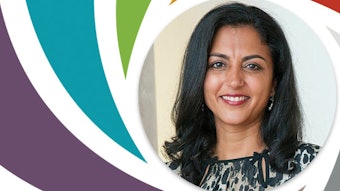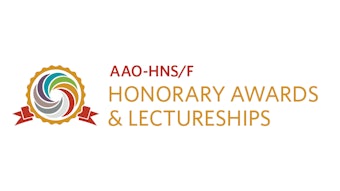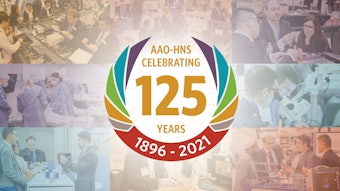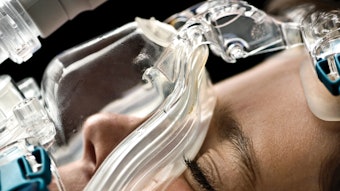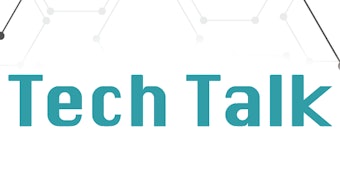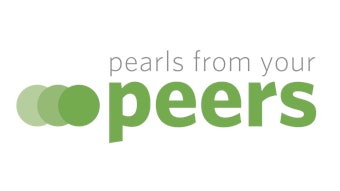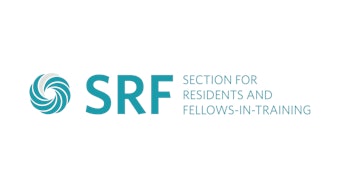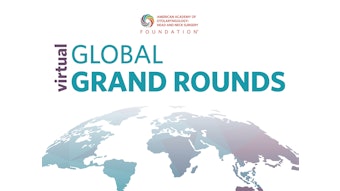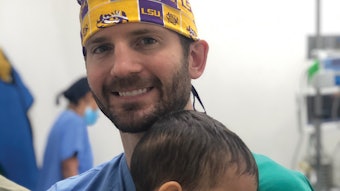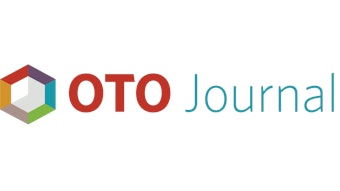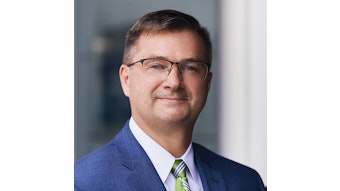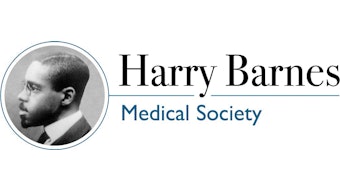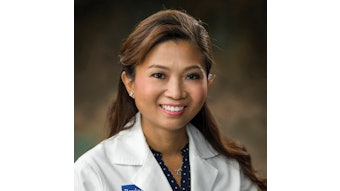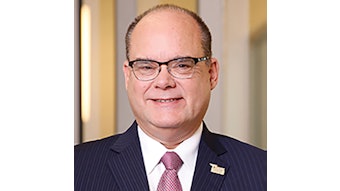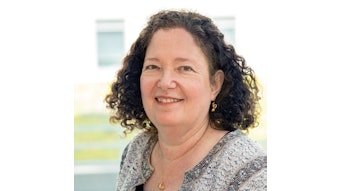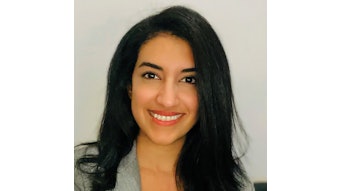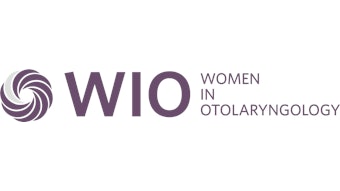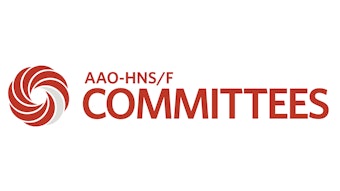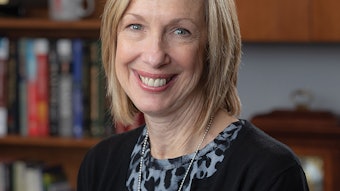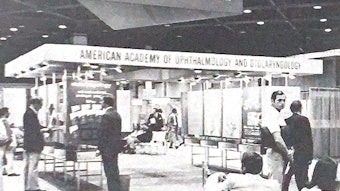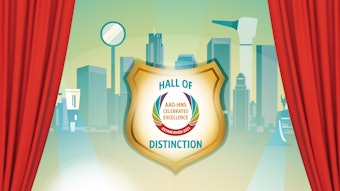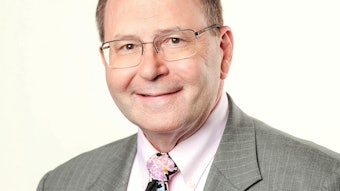With Gratitude for Our Annual Meeting
Daniel C. Chelius, MD, Chair, and few members of the Annual Meeting Program Committee share their most memorable moments from the Annual Meeting over the years.
Daniel C. Chelius, Jr., MD, Annual Meeting Program Coordinator
"When a large group of specialists comes from far and near to a scientific session of a medical organization such as this, the occasion is a significant one. Significant because we are not unmindful of the sacrifices many of you have made in attending this gathering and the sacrifices made by those who are serving in the armed forces. Significant, furthermore, because of the numerous problems before us, problems which this Academy must help solve, problems which in some manner or other affect each and every one of us and which may influence not only our present lives but our future.”
- First Vice Presidential address by Walter H. Theobald, MD, from the 1942 Transactions of the American Academy of Ophthalmology and Otolaryngology on the occasion of the 47th Annual Meeting.
I first read Dr. Theobald’s 1942 remarks last fall as I was reviewing our Academy’s history for an article about the Annual Meeting. Over the past nine months, as our Annual Meeting Program Committee and dedicated meetings staff have worked diligently to prepare for the multiple possible scenarios and formats for our 2021 Annual Meeting & OTO Experience, I have often returned to comments from our Academy’s leadership during past times of uncertainty both for their perspective and their inspiration. Dr. Theobald and his contemporary Academy leaders repeatedly touched on several common themes of the Annual Meetings of their eras, which ring familiar and true as we continue to rise to the challenge of the COVID-19 pandemic: dedication both to education and to scientific rigor in the service of our patients, communities, and field; hope in our ability to unite to solve the problems facing us, and above all, gratitude.
When I consider our upcoming gathering in Los Angeles, California, and in fact, when I consider the many ways our Annual Meeting has touched my personal and professional life, I think gratitude best captures my feelings.
I have been so excited and thankful to hear from friends and colleagues as they make their travel plans for Los Angeles, even when those plans from one dear friend came with a true nerd’s apology that he will be “playing hooky to go to Galaxy’s Edge at Disney” one day. Though the opportunity to reunite with our community is particularly precious this year, I recall, with similarly deep gratitude, some of my first Academy meetings after training. Before I returned to tertiary academic pediatric otolaryngology, I was extremely fortunate to spend three years as a young associate in a private, general otolaryngology practice in Houston, Texas, mentored by incredibly skilled and compassionate surgeons.
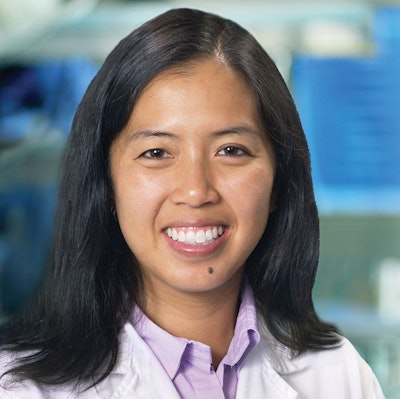 Julina Ongkasuwan, MD
Julina Ongkasuwan, MD
Julina Ongkasuwan, MD
“When I was a young attending, I was being asked to review articles for journals, but I felt like I had no idea what I was doing. Searching for guidance I attended a Panel Presentation by the editors of the major otolaryngology-head and neck surgery journals. The purpose of the panel was to help clueless reviewers like myself understand the behind the scenes of the peer review process. Importantly, the panelists laid out explicitly what the editors needed and expected from us as reviewers. I furiously took notes cringing at my previous subpar reviews. Once home, I immediately began incorporating changes. The next year I attended again to pick up on pearls that I had missed the first time around. This time I dragged along two of my colleagues because I believed that the panel was essential for young academicians. Since then, I have had the honor of serving on the editorial boards of some of our specialty’s journals. I still incorporate the things I learned from that Academy Annual Meeting Editorial Board Panel Presentation into every review I perform.”
The partners at Rosewood ENT were the kind of physicians and community members I aspired to be and reminded me of some of my best teachers. They obviously cared significantly about my personal and professional development and understood how important the Academy was to me. They supported me financially and covered my patients to allow me to attend the Annual Meeting each year. I will always be thankful for their sacrifices and commitment that empowered me as a young physician to engage fully at the Academy, both in learning and in service, and I hope young physicians in future generations will feel the same support I did. I am filled with gratitude as I must acknowledge that for all of us, taking time away from home, practices, and family to come together as an Academy has always represented a sacrifice of sorts—but more so this year with some of the risks of travel and financial challenges still faced by many.
I have been grateful to bring home professional development, practical updates, and improved care paradigms from the expert faculty and presenters at the Annual Meeting every year. Prompted by my struggles to help a deeply depressed patient with years of a bothersome cough, I attended an expert lecture on “Chronic Cough and other Sensory Disturbances” in Orlando, Florida, in 2014. I will never forget my next several visits with the patient during which we applied the wisdom from that course. Her cough melted away while her depression slowly improved as well. After each Annual Meeting, I refine my thoughts on advanced thyroid cancer after reviewing the year’s debates about central neck management, advances in molecular understanding of disease, and differences in therapeutic approaches to advanced or recurrent disease in different high volume endocrine surgery practices. The education programs have been a highlight and strength of the Academy’s yearly lifecycle for 125 years. I am truly thankful when I consider the exceptional response we had to this year’s Call for Science, and of the breadth and depth of education opportunities available from our dedicated faculty and presenters this year with over 300 Expert Lectures and Panel Presentations and 50 minicourses and simulation sessions available.
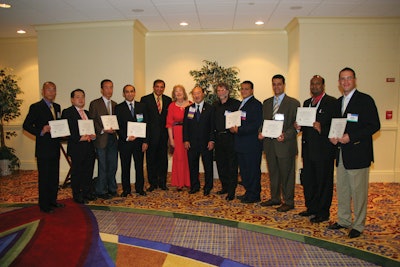 2007 AAO-HNSF International Travel Grant Recipients, with (starting fifth from the left Nikhil J. Bhatt, MD, AAO-HNSF 2011-2015 Coordinator for Development; Catherine Lincoln, AAO-HNSF International Program staff; Peter J. Koltai, MD, International Committee Chair; and Richard T. Miyamoto, MD, AAO-HNS/F 2006-2007 President
2007 AAO-HNSF International Travel Grant Recipients, with (starting fifth from the left Nikhil J. Bhatt, MD, AAO-HNSF 2011-2015 Coordinator for Development; Catherine Lincoln, AAO-HNSF International Program staff; Peter J. Koltai, MD, International Committee Chair; and Richard T. Miyamoto, MD, AAO-HNS/F 2006-2007 President
Do-Yeon Cho, MD
“After finishing my ENT residency in South Korea, I came to Stanford as a visiting scholar in 2007. As an international otolaryngologist doing research in the U.S., I attended my first AAO-HNSF Annual Meeting in Washington, DC, after receiving a 2007 International Travel Grant. It was an eye-opening meeting with state-of-the-art ceremonies, up-to-date programs, and various sessions, including the Humanitarian Efforts Forum, where I presented my trip to North Korea...the academic experience at the Annual Meeting was one of the drives to re-do my ENT training in the U.S. and become a physician-scientist. Now, I am a U.S. citizen through naturalization and call myself a physician-scientist at an academic institution in the U.S. When looking back, my American journey started with the Annual Meeting in 2007.”
During our resident and fellow welcome breakfast on the first day of the new academic year, my department chair Donald T. Donovan, MD, encouraged our faculty and trainees in the pursuit of excellence in scientific inquiry with this quote from Thomas Jefferson:
“Truth is great and will prevail if left to herself, that she is the proper and sufficient antagonist to error, and has nothing to fear from the conflict, unless by human interposition disarmed of her natural weapons, free argument and debate; errors ceasing to be dangerous when it is permitted freely to contradict them.”
I am grateful that we will embrace this sentiment once again at this year’s scientific presentations as we review and critically debate innovative research from over 250 Scientific Oral presentations and over 350 Posters including 40 high quality late-breaking abstracts. Our new Great Debates format will encourage an in-depth discussion of some of the most pressing questions in otolaryngology by widely respected experts in our field. The debates will include topics such as the future of otolaryngology practice settings, the balance of experience and surgical volume versus access to care for complex diseases, the risk-benefit analysis of intra- versus extra-capsular tonsillectomy in children, the best care paradigms for sinonasal polyposis in the era of the biologics, the role of de-escalation in HPV-associated head and neck cancers, and whether proton pump inhibitors are truly friend or foe.
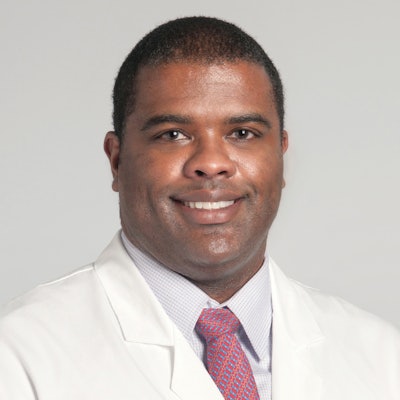 Troy D. Woodard. MD
Troy D. Woodard. MD
Troy D. Woodard, MD
“One of the greatest values of mentors is the ability to see ahead what others cannot see and to help them navigate a course to their destination.” — John C. Maxwell
“During my residency and first few years of practice, I looked forward to attending the Annual Meetings because of the dynamic speakers and exciting courses to further develop my surgical skill set. I have come to realize that our Annual Meeting is much more than aggregations of key thought leaders spreading their knowledge—they are fertile environments which cultivate collaborations, personal and professional relationships, and key networks.
While I definitely enjoy meeting up with old friends and colleagues, one of the aspects that I value the most is the mentorship that I have obtained attained through our Academy. My passion and motto have always been to “get involved and give back to my community.” But, while I possessed the desire and drive to get more engaged, I really did not know how or where to start. One individual in particular, Stacey L. Ishman, MD, MPH, forever changed the trajectory of my personal and career development. First, she asked me “What do you want to do?” Next, “How can I help you?” After a brief conversation, she then said, “Let’s go do it!” It was that statement that blew me away. I realized that true mentors not only share knowledge, expertise, and experience, but also provide advice and empower their mentee to take action toward their goals.
There are many opportunities within our Academy to empower and mentor others. Participation is sure to stimulate personal and professional growth. All you have to do is participate. Will you join me?"
With such a large gathering each year, I am very thankful for all the many ways in which the Annual Meeting offers attendees the opportunity to engage in smaller, focused communities. For me, the Section for Residents and Fellows-in-Training (SRF) became my first “home” within the Academy when I attended the SRF General Assembly as a PGY-3. I found the similar opportunities for engagement, mentorship, and professional development at committee meetings, the International Young Physician’s Forum, and eventually the Young Physicians Section when I completed training. The leaders I met at the Women in Otolaryngology General Assemblies taught me how to be a better ally in efforts toward equity for our patients and our colleagues. The dedicated members of the Board of Governors taught me health policy, advocacy, and how to achieve real change for our individual members through grassroots engagement. When we step forward into these communities at the Annual Meeting and begin working toward solutions for our field, “the Academy” becomes less of a large, nebulous concept and increasingly just the embodiment of all the friends and colleagues working at your side toward common goals. I hope all attendees can take advantage of these opportunities to bring the Academy down to size on a personal level where we can each make a difference.
When reviewing Annual Meeting addresses from throughout our history, there is uniformly an acknowledgment that it is critically important for us to renew our camaraderie and social bonds in the field. As I revisit my own history at the Annual Meeting, these are easily the moments for which I am most grateful: for dinners with residency alumni from my era at Baylor, for chance meetings in the hall with former medical students or fellowship faculty, for reconnecting with the mentors and collaborators who have become dearest friends over the course of years of Academy engagement—this is truly what I am most looking forward to in Los Angeles. With gratitude, I hope to see you there.

